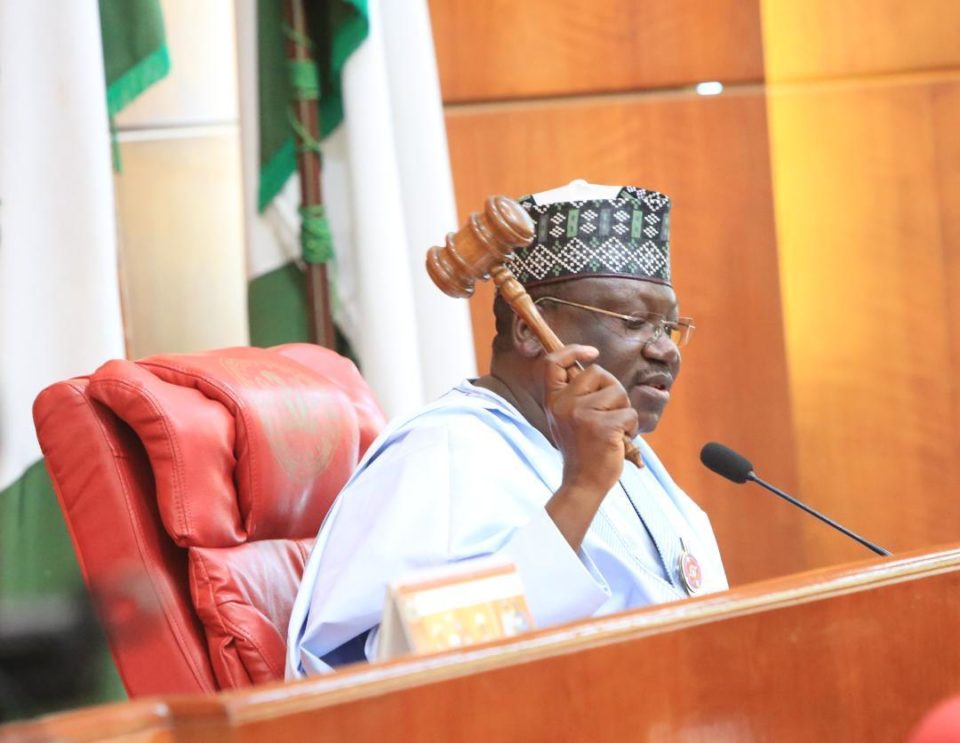
What That Unremitted N1.2 trillion Could Do For Nigerians, by Salisu Na’inna Dambatta
The National Assembly on January 31, 2022 set a target of N3 trillion for the country’s revenue-generating agencies for 2022. Senate President Ahmad Lawan said the agencies can generate and remit that amount of money yearly to the Federal Government.
Yes. They can generate, but the lacuna is that, many agencies do not remit their operating surplus while the country is borrowing to finance the provision of infrastructure to enhance the wellbeing of the citizenry. The Fiscal Responsibility Commission said currently some 32 government agencies have refused to remit their operating surplus totaling N1.2 trillion (USD2.8 billion at the official N416 to USD1) to the Consolidated Revenue Fund (CRF).
The Chairman of the Fiscal Responsibility Commission, Mr. Victor Muraco, said that the Commission has discovered that the huge amount of money is in some commercial banks instead of sending it to the Consolidated Revenue (CRF) to provide much-needed funding for public goods.
The Chairman named some of the 32 agencies unwilling to comply with the provisions of the Fiscally Responsibility Act. They include the National Broadcasting Commission (NBC); Federal Radio Corporation of Nigeria (FRCN); Bank of Industry (BOI); Nigeria Immigration Service (NIS), National Drug Law Enforcement Agency (NDLEA); and Small and Medium Enterprises Development Agency of Nigeria (SMEDAN).
At inception in 2007 there were only 31 government agencies that were expected to remit their operating surpluses to the federal Consolidated Revenue Fund (CRF). By 2020, there are 123 agencies, but some of the agencies do not remit their surplus as required by law. They allegedly divert it to finance unbudgetted or frivilous expenditures.
In a 2015 circular issued by then Minister for Finance, Mrs. Kemi Adeosun, it was ruled that “all revenues generated by all MDAs must be reported on a gross basis prior to any deduction. Equally, all self-funded Federal Agencies must limit their annual expenditures from their internally-generated revenues to 75 percent of their total gross revenue, while-fully funded agencies are to remit all their internally-generated revenue (IGR) to the CRF.
Mr. Muraco said, “Sadly, many MDAs still persist in defaulting and practically keeping money away from the federal government’s reach for funding its budgets. Our records indicate that over N1.2 trillion is still in the hands of defaulting MDAs.”
The negative implication of denying that N1.2 trillion to the federal Consolidated Revenue Fund is almost akin to an economic war against the nation: it can pay for the renewal of the dual carriageway from Zuba to Kaduna and Kano via Zaria at least three times over at the contract sum of USD530 million, with a surplus to pay off the Sukuk loans for the dualisation of the Kano to Katsina highway.
The amount is more than twice the USD$1.2 billion initial cost of constructing a single track standard gauge rail line between Kano and Kaduna (it has since been remodelled to a dual-track line). The unremitted money detected by the Fiscal Responsibility Commission in the 32 federal agencies can pay the USD1.9 billion for building the Kano-Dambatta-Kazaure-Daura-Mashi-Katsina-Maradi standard gauge line with a branch to Dutse in Jigawa stateand still leaving a credit balance to pay twice the N4 billion take-off grant for each of the new federal universities in Akwa Ibom, Osun, Bauchi and Jigawa states, totaling N36 billion, and still pay the bill for the Ibbi bridge on River Benue in Taraba state. But Mr. Victor Muraco has said that the money is trapped. It is feared that it may altogether disappear to the deteriment of the wellbeing of Nigerians who could have benefitted from the projects it can finance. Can it be recovered?
Is there any penalty or sanction against agencies that disregard the provisions of the Fiscal Responsility Act and the Circular from the Federal Ministry of Finance? Almost no: the Fiscal Responsibility Commission, according to its establishment Act, can only report any agency that violated the provisions of the Act to the Attorney General of the Federation and Minister of Justice for investigation and possible prosecution. Obviously this is not enough.
However, there are many agencies that are regular in remitting their operating surpluses to the CRF, such as the Nigeria Maritime Administration and Safety Agency (NIMASA, which remitted N37.7 billion to the CRF in 2021 and N31.8 billion in 2020; and the Nigeria Deposit Insuarance Corporation (NDIC).
In a previous article I wrote titled, “How NDIC Fills FG Revenue Gap, I reported that,”The NDIC remitted the sum of N104.26 billion into the Consolidated Revenue Fund (CRF) from 2007 to 2016. In 2016 alone, under the watch of Umaru Ibrahim as Managing Director and Chief Executive Officer, the amount was N34.89 billion.”
The current Managing Director/CEO of the NDIC, Alhaji Bello Hassan, has sustained this pleasant corporate culture of remitting operating surplus into the CRF. Indeed, from 2007 to the end of second quarter 2021, the total sum of N332,525,710,619.00 had been cummumulatively remitted into the CRF by the NDIC in compliance with the Fiscal Responsibility Act [FRA 2007).
Other FRA compliant agencies include the Petroleum Products Pricing Regulatory Agency, the Central Bank of Nigeria, Nigeria Ports Authority, and Federal Airport Authority of Nigeria, Nigeria Postal Service, Nigeria Communication Commission, National Inland Water Ways Authority, and National Information Technology and Development Agency.
The Nigeria Airspace Management Agency, National Examination Council, Nigeria Television Authority, the Joint Admissions and Marticulation Board, Nigeria Shippers Council, National Health Insurance Scheme, National Pension Commission, Corporate Affairs Commission and Standard Organization of Nigeria also respect the Act.
To reduce refusal to comply with the provisions of the Act, the Federal Government may spell out punishment for the management of agencies that refuse to comply with the provisions of the Act, and create a reward system for the agencies that comply with the rules.
Salisu Na’inna Dambatta writes from Kano
